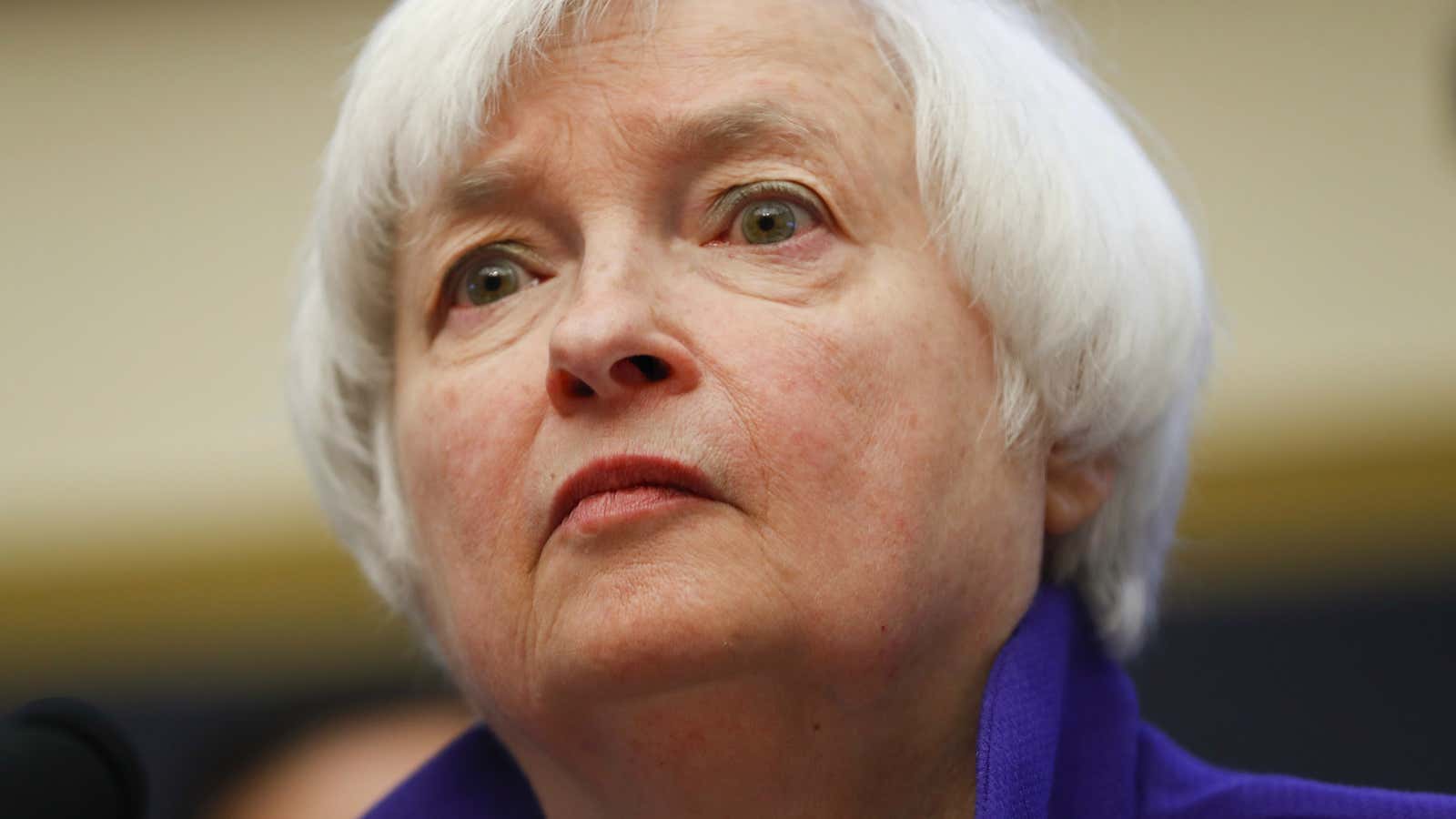Donald Trump spent the last year alternatively bellyaching and praising the Fed’s low interest rates and vowing to replace its chairwoman, Janet Yellen, when her term is up (paywall). “She should be ashamed of herself,” he said in September 2016, after accusing her of following orders from president Barack Obama. “What they [the Fed] are doing is, I believe, it’s a false market,” he said.
Well, markets are about to get real. The Fed’s position is shifting fast. And while that might suit Candidate Trump, President Trump is unlikely to be so enthusiastic.
Yellen is expected to raise US interest rates on Wednesday, Dec. 14, thanks to a tightening US labor market and rising oil prices. This will be the second increase in a decade; since the US housing market implosion and the global financial crisis, the Fed has been focused keeping money loose, aiming to spur investment and stave off deflation.
Trump’s victory has made a rate rise even more imperative. The US economy is now in reflationary “Trump boom” mode. Investors have driven stock markets to record highs, betting that Trump and the Republican Congress will pass a huge fiscal stimulus, focused in large part on infrastructure spending. Business confidence is growing as the president-elect promises cuts in taxes and in regulation that are likely to spur private investment.
A Trump boom that boosts US economic potential by spurring business investment will not necessarily be dangerously inflationary, all else being equal. However, as employment and investment rise, prices will inevitably rise—even more so if Trump raises trade barriers as promised.
It will fall to Yellen to keep the lid on inflation. And “no president likes the central bankers who take away the punch bowl just as the party is hotting up,” as Financial Times columnist Edward Luce observes (paywall). Raising rates will likely strengthen the dollar, widening the US trade deficit, which Trump vowed to shrink.
Though Trump can’t—as promised—actually fire Yellen, he can decline to renew her tenure when her term ends in 2018. That would be a break with recent precedent given that the last three Fed chairs have all been reappointed. Trump will also get to fill two Fed board vacancies. And he can continue to encourage populists on both the right and the left to rein in the Fed’s power and make the central bank more accountable to politicians—a battle that will likely shred America’s already tattered trust in public institutions. Politicizing monetary policy would put him in the same league as Vladimir Putin and Recep Tayyip Erdoğan, both of whom bully their central banks to lower rates.
There is an upside to higher rates: They will give the Fed much more room to combat a future recession, as Stanley Fisher, Fed vice-chair, recently highlighted. But equally crucial to US—and, for that matter, global—financial stability is trust in the Fed. If Trump takes his Yellen-bashing to the White House, runaway inflation, a giant bond selloff, or an overheating economy could well follow.




